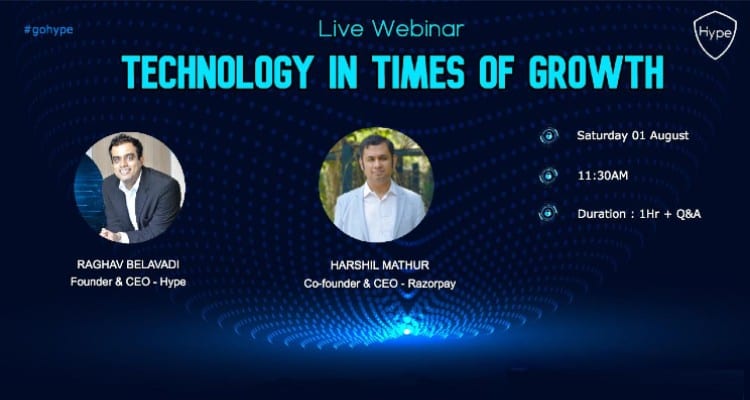Change may be a constant, but it’s not the only one now. If there’s anything that 2020 has taught us, it is that technology is constant. While it has surrounded us for the past few decades, it is now at the core of human existence. From our morning alarm to our late-night digital journals, from our fitness trackers to our smart-devices, from AI-powered ads on our phones to digital payments, our lives are governed by technology. From being a mere facilitator to now becoming a mode of survival, technology has been a disruptor, a game-changer.
From the looks of it, technology is here to stay. It will only keep getting bigger and better. Given the global context, we’re in, businesses are going digital, trying to buy themselves visibility and sell their offering in the digital space. While technology has made businesses more convenient, it also comes with its own challenges, especially for startups. Areas like digital marketing, branding for B2B businesses, and the growth of finance-technology startups, or ‘Fin-Tech’ as its called, are issues of importance. As part of its webinar series, Hype hosted Harshil Mathur, Co-founder, and CEO of Razorpay, one of India’s most popular and preferred payment gateways. In his conversation with Harshil, Raghav Belavadi, CEO, Hype, asked him about how different businesses need to chalk out their growth together, innovation in India, and the rush that startups today have, to become a unicorn business.
The unicorn race:
RB: In the startup space, we see a lot of startups that launch with the aim of becoming a unicorn, but as a venture, Razorpay focused on incremental growth. What do you have to say about this ‘unicorn-mania’ of sorts?
HM: If any business wants to survive in today’s day and age, it’s important to first build a foundation. The focus should be on growth and going deep in your own market. Even if I have a 20% market share for my product, I own that space. By working on it, improving it continuously, I will ultimately be able to increase that share. Startups must focus on growth, becoming a unicorn is like a side-effect.
HM: (contd) Acquiring customers is also very important for any business. Building brand loyalty is extremely crucial. However, for Razorpay, the situation is slightly different. Payment gateways are just a mode of carrying out the payment, so an average customer will worry only about the functionality. Elements like design and imagery will not attract a customer to a payment gateway. So at Razorpay, we focus less on mainstream advertising/branding and more on community building. We host events, interact with our consumers, so as to build a relationship with our consumers. What I’m trying to get at, is that every business has its own needs, which when taken care of adequately, lead to growth.
Technology & Innovation in India
RB: We see so much technological innovation around the world but not a lot of it in India. Does India lack innovation in the startup sector?
HM: No, in fact, in my opinion, India has seen a lot of innovation, but the kind of innovation is different. When it comes to technology, e-commerce and the digital sector, the innovation has been very ‘India-centric’. Indians are culturally very particular about money. Money in India symbolizes trust. People were initially hesitant to pay for a product they’re buying online. Flipkart innovated and offered them a Cash on Delivery option. This not only made purchases convenient but helped build trust too.
While we often hail Uber on a global level, Ola revolutionized the on-demand cab sector by offering a service wherein people could book a cab without using the Internet. In a country like India which was struggling with high-speed internet in some parts, this is the kind of innovation we need. So the innovation here is different, but it’s surely there.
RB: Does the kind of innovation that we see, then, different?
HM: Of course, yes. India is such a large market and consumer needs are quite varied. Ultimately, catering to the consumer’s needs is what matters. In our niche, we can do it with better functionality and that is possible through technology.
The fin-tech ecosystem in India
RB: There are so many Fintech startups that are trying to make a mark today, Harshil. A lot of entrepreneurs look up to you and take inspiration from you. What message would you want to convey to Fintech entrepreneurs?
HM: The Fintech niche in India is still developing. That means there will be challenges, but there’s also a lot that you can work with. In order to survive in the market, you must know what you want to solve. If you’re trying to fix a customer problem, talk to your customers, learn from them, and establish what your goal should be, in the first place. Once you have that sorted, work towards achieving that, and outside influences won’t matter as much.
While technology remains central to growth, it is the proper assessment of socio-cultural fuels and consumer behavior that helps a business survive and Harshil’s insights brilliantly summed up the recipe for success. Technology for better consumer experience, for effective solutions to customer issues, will always cut through the clutter and help you achieve excellence.









